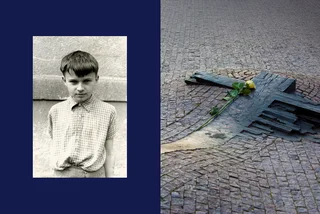There’s no way to sugarcoat it — being a foreigner in the Czech Republic is hard. For many of us integration is a continuous process that comes with a lot of self-doubt and constant comparisons with your country origin. As we kick off another year of Czech-language missteps and confrontations with sourpuss cashiers, Dr. Désirée Gonzalo, a Spanish clinical psychologist who has been counselling Prague’s foreign-born population for nearly a decade offers some coping strategies for a better Bohemian life in 2019:
Fall in love with the Czech Republic all over again
Remember when you first arrived in the Czech Republic and couldn’t help but take pictures of every beautiful building? When you beamed with pride over your first successful Czech-language transaction? Over time, it’s easy to let the struggles cloud your appreciation of living in a foreign country. If you’ve been feeling jaded about expat life, kick off the year with a trip or immerse yourself in Czech culture via a festival, book, or film.
Give those cranky service providers a break already!
According to Dr. Gonzalo, many of the misunderstandings that arise in the daily life of an expat lie in mismatched cultural expectations, or a lack of understanding and/or acceptance of differing social norms. Customer service situations are a classic example of the ways in which an exchange between two people from different cultures can fail taken at some level. She says that it’s important to approach them with an open stance, seeing it from the other’s perspective, while examining the taboos around expressing certain thoughts and emotions. “Why not challenge some of our own filters?” she adds.
Make this the year you step up your Czech
Difficulties communicating can greatly hinder your attempts at embracing a new culture and way of life. “Precarious communication generates feelings of personal inefficiency and exaggerates pre-existing insecurities, ” says Gonzalo, adding that common preexisting conditions of those who do not integrate well are social anxiety and mistrust. The good news is that a recent study found that learning a second language at any age can help your brain. And with a variety of new ways to learn — from apps to daily phone calls — you’ve got plenty of resources to help make it stick in 2019.
You can also explore our Teachers in Prague pages to find a tutor.
Stay connected locally — and abroad
It’s so easy to lose touch with loved ones you might only see once a year, especially given time zone differences and other challenges. But seeking support from those close to us, no matter how far away they are, is crucial says Dr. Gonzalo. “If we live abroad, we can communicate with friends or relatives in our place of origin, or anywhere around the globe. In this age, technology is on our side. The important thing is to stay connected with people, who support us, wherever they are.” Another way to create a support network is to get involved with local communities, she says, reconnecting with your culture via meet-ups and activities that celebrate your home culture or thinking of ways to share it with Czechs.
Choose your friends wisely
That said, it’s important to avoid toxic relationships. “I often hear complaints about the ‘Czech ways’ along with significant resistance to adapt,” says Dr. Gonzalo. When compounded these circumstances can cause people to disengage from the integration process, and surround themselves with people that conform to expectations of familiarity, i.e. countrymen or other foreigners. This reduction in social circles can generate feelings of uprooting and imbalance of one’s own social identity, she says. “It’s important to be selfish about time spent with people you value (they are your support network), spending more time offline, or joining activities where you can [interact] with new people.”
Be realistic about change
Landing a new job, swearing off booze (easier said than done when a friend has made a trans-Atlantic trip to see you), finding a better flat or purchasing a home on a real-estate market that saw prices skyrocket in 2018 can all seem a bit daunting. Dr. Gonzalo stresses the importance of realistically planning gradual changes. “Staying optimistic and hopeful about the possibility of improving our own circumstances in the future, e.g. being confident in our ability to exert changes, influence circumstances, and persevere is key,” she says. Above all, go easy on yourself; resolutions can be a lot harder to keep when you live in a foreign country!
Accept adversity as part of the expat experience.
Resilience is the ability to withstand and overcome difficult or even traumatic circumstances. For some of us, living abroad can be such a circumstance to various degrees. What differentiates people who manage to overcome difficulties from those, who drown and continue to suffer indefinitely? Resilience, says Dr. Gonzalo. “People who practice resilience are not extraordinary,” she says. “They are normal people who possess some common qualities, which allow them to bounce back from problems with a feeling of having learned something, having grown up, and having become stronger inside.” Radically accepting external factors, such as the whirlwind of emotions that accompany the expat experience, as something which we cannot alter is key.
Dr. Désirée Gonzalo is a clinical psychologist and practicing expat psychotherapist living in Prague since 2008. Contact her at drdesireegonzalo@gmail.com.












 Reading time: 4 minutes
Reading time: 4 minutes 

























